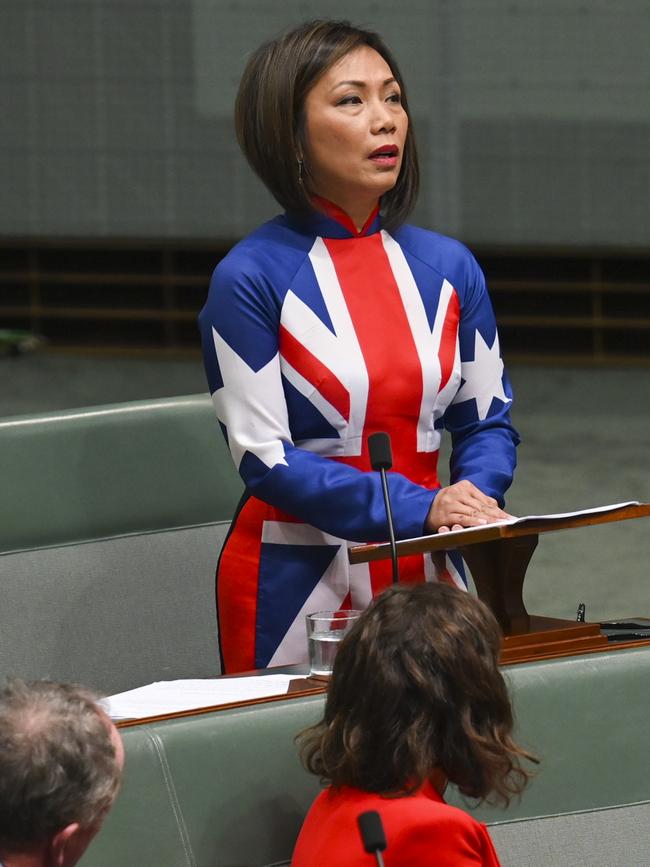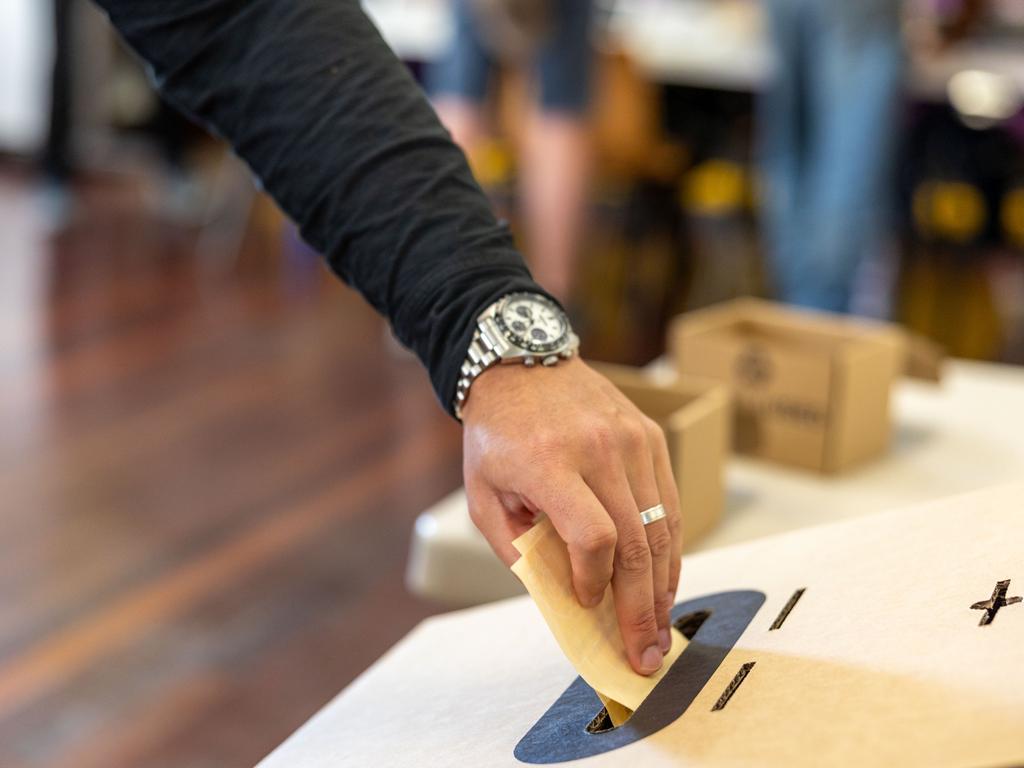
The old rules of politics are falling apart. The electorate is more temperamental, divided and volatile. The troubles of the Albanese government have two sources – its own mistakes and the fracturing of our political culture into subcultures.
The voice referendum reveals the erosion of our common purpose. The internal tension over the Israel-Hamas war is another prime exhibit. The central disorganising principle is the hostility between the public and elites (left or right) and the public’s distrust of institutional political power.
Interviewed by The Australian, the director of RedBridge polling group, Kosmos Samaras, refers to his agency’s analysis of the voice result and its core finding that the Yes vote lost in the middle and outer suburbs of our capital cities – moving beyond the 10km range from the centre – where 7.2 million adult Australians or 40 per cent of eligible voters live.

His message: “Lose these areas badly and it becomes impossible to win an election or referendum.” Samaras says: “This 40 per cent of the electorate has a very strong feeling that it is not represented in our politics. They feel that much of what happens in our political life has little relevance for them – whether it’s the Brittany Higgins court case or other issues that bubble from the media cycle, particularly from the left of politics.
“These people feel an absence of connection with many high-profile issues. The voice was a peak episode of that. They quickly realised the voice was being pushed by people engaged in the power networks in our community. The concept of power is critical here. And people rebelled against it. What we are starting to see here is the development in Australia of the sort of schism we see in the US politics. It’s starting to become an issue.
“Labor’s problem is that, up to now, it hasn’t been talking to these people. Not only do they feel disconnection but this is where the main financial hardship and mortgage stress is located, it’s right in these areas. These people resent both right and left-wing elites who seem to be controlling the agendas in this country. They feel as though these bookends dominate everything and their response is ‘my view of the world gets completely shut out.’
“When you talk to focus groups about the Middle East and the protests, their response is always ‘Can’t people stop bringing their problems to this country’ and ‘Why are we always importing other people’s disputes?’
“These outer suburbs resent people and elites they think have a monopoly on power and access to power. And it’s these 40 per cent of Australians who will determine the next election.

“Right now, they are eating into their savings, living off their credit cards. That’s why it was so important in the first 18 months to ensure Labor got its cultural settings right. These people would say to us about the economy: ‘I don’t expect politicians to fix everything, I know this is a complicated problem, but I want them in my corner.’ But what the Albanese government did by focusing on the voice for so long was to bake-in the brand that Labor wasn’t interested in the concerns of these people.
“Labor spent the first 18 months defining themselves as a government that culturally does not connect with these people in political terms. It’s not easy to undo things once you’ve convinced people who you are.”
The RedBridge analysis on the referendum shows Australians divided by location, education and income. There were two distinct concentrations for the Yes vote: the high-density urban cores of major cities (about 15 per cent of the total vote) and remote Indigenous communities. The Yes vote was higher in communities with higher median household incomes and where a larger share of the adult population had a university degree.
But the Yes campaign became a study in elites uncomprehending how their campaign alienated the voters they needed to attract.
Samaras says it was difficult for Labor but in the end “it became a campaign all about the left-wing elite part of our country”. It was a display of power in a nation driven into multiple cultures: “They used the pillars of their society – celebrities, sponsorships, endorsements, companies supporting the voice. They ran a campaign that was tailor-made for themselves using their own social networks.
“It had nothing to do with people in the outer suburbs. So these people turned up and voted no.”

For Samaras, the Albanese government needs to move quickly: “It needs to pivot drastically to an economic narrative that talks to these outer suburban areas. But Labor is going to be pulled from pillar to post. I mean, talking about the Labor Party in general, a majority of the people who work for the Labor Party, they don’t live among these people in the outer suburban areas. The staffers don’t, they don’t live in these areas.”
At the 1949 election that began the Menzies era, 96 per cent of votes cast were for the major parties. At last year’s federal election this figure had fallen to 68.3 per cent. It means one-third of the electorate is choosing a primary vote outside the major parties. This is a long-run and pervasive trend – a fractured culture is creating a fractured politics.
“At the last election 5.6 million Australians voted for something other than the major parties,” Samaras says. “I think that will be well over six million at the next election. The people are waiting, they’re looking for an alternative.
“There will be more pressure on the major parties. The concept of a safe seat is starting to die. On the Labor side last election Fowler was the canary in the coalmine – it’s not an exception, it’s what’s coming.”
The seat of Fowler in Sydney’s southwest, previously a safe Labor seat, was won by independent Dai Le, with Samaras saying: “You had someone who was respected, who came from these communities, who didn’t come across as an institutional political player.” Samaras says at the last election – even with a winning Labor result – the ALP primary vote plummeted in a range of once-safe ALP Melbourne seats. It’s an omen.

“A lot of seats aren’t stable any more,” he says. “As long as Anthony Albanese and Tanya Plibersek stay in parliament Labor will hold their seats, but once they leave Grayndler and Sydney will be in jeopardy of falling to the Greens.”
Samaras says a vote against the Albanese government doesn’t necessarily equate to a vote for the Peter Dutton-led Coalition. Politics doesn’t work like that any more.
“In many ways it’s a choice between bad and worse,” he says. “In these outer suburban communities people will tell you they don’t want the Labor Party but the other mob are worse.
“This applies particularly to younger people, they’re reluctant to vote for the Coalition if you offer them a genuine independent.”
The Liberals are still far short of being genuine contenders to win the next election. The current danger for Albanese is being reduced to minority government and the long oblivion that follows. This would be the second minority government in 15 years. But the bigger problem for our democracy just gets bigger – alienation and fracture in the political system.







We are all slaves to conventional wisdom. The risk in politics is that conventional wisdom is being applied to the fate of the Albanese government when the conventional is dying. The dominant theme in our politics today is fracture – the established order is under assault.